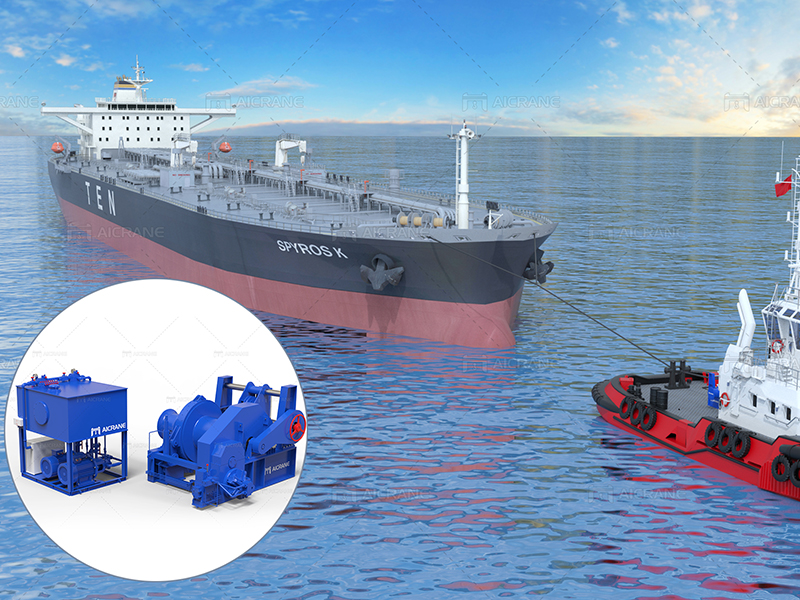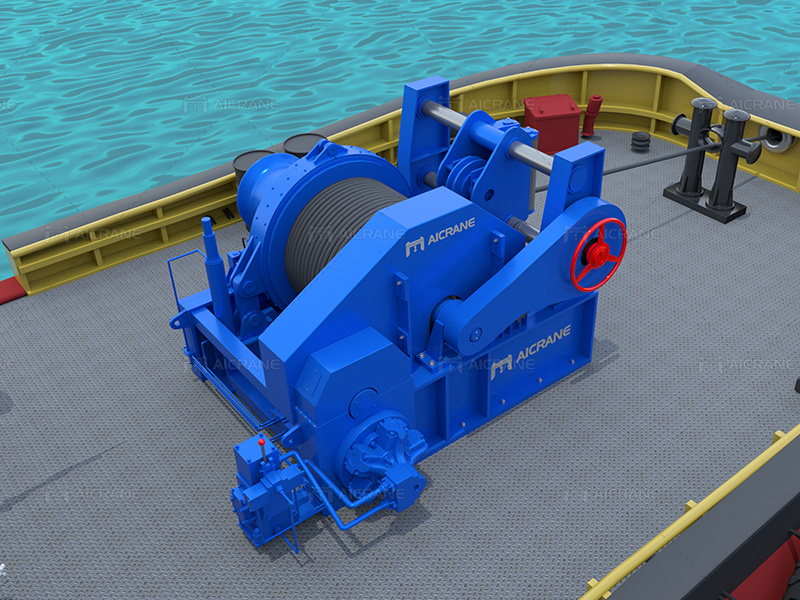Towing winches play a critical role in the maritime industry, providing the necessary power and control to tow or anchor vessels safely. As these winches operate under demanding conditions, adhering to specific certifications and standards is essential to ensure their reliability, efficiency, and, most importantly, the safety of marine operations. In this article, we will explore the certifications and standards that towing winches should meet for marine use.

ISO 9001:2015 – Quality Management Systems Certification:
One of the fundamental certifications that towing winches for marine use should meet is ISO 9001:2015. This international standard sets out the criteria for a quality management system and is applicable to organizations of any size. Towing winch manufacturers that hold this certification demonstrate their commitment to maintaining high-quality manufacturing processes, from design and production to installation and servicing.
ISO 3834 – Quality Requirements for Welding:
Given the structural significance of welding in the manufacturing of towing winches, adherence to ISO 3834 is crucial. This standard outlines comprehensive quality requirements for welding processes, ensuring that the welding techniques employed meet the necessary criteria for strength and durability. Manufacturers that comply with ISO 3834 provide assurance of the integrity of the winch’s welded components, contributing to the overall safety and reliability of the equipment.
DNV GL – Det Norske Veritas Germanischer Lloyd:
DNV GL is a classification society and an international accredited registrar and classification society headquartered in Norway. Towing winches meeting DNV GL standards have been thoroughly assessed and approved for compliance with safety, reliability, and environmental performance requirements. DNV GL certification adds credibility to the manufacturer’s claims regarding the quality and safety of their towing winches.
ABS – American Bureau of Shipping:
The American Bureau of Shipping (ABS) is a classification society, with a mission to promote the security of life, property, and the natural environment. Towing winches that meet ABS standards comply with a set of rigorous criteria for design, manufacturing, and testing. ABS certification is recognized globally and is indicative of a commitment to the highest standards of safety and reliability in the maritime industry.

Lloyd’s Register:
Lloyd’s Register is another renowned classification society with a long history in the maritime sector. Towing winches for sale meeting Lloyd’s Register standards have undergone a thorough assessment to ensure compliance with industry-recognized norms. Lloyd’s Register certification provides assurance to shipowners and operators that the towing winch adheres to the necessary safety and quality requirements.
IMO – International Maritime Organization:
The International Maritime Organization (IMO) sets global standards for the safety, security, and environmental performance of international shipping. Towing winches must adhere to IMO guidelines and regulations to ensure that they contribute to safe and environmentally sustainable maritime practices. Compliance with IMO standards is essential for the overall safety of marine operations involving towing winches.
IEC – International Electrotechnical Commission:
For towing winches with electrical components, adherence to IEC standards is crucial. The International Electrotechnical Commission sets international standards for electrical, electronic, and related technologies. Compliance with IEC standards ensures the reliability and safety of electrical systems within the towing winch, minimizing the risk of malfunctions or electrical failures during critical operations.
CE Marking:
The CE marking is a mandatory conformity mark for products sold within the European Economic Area (EEA). Towing winches bearing the CE marking indicate that they comply with essential health and safety requirements. Manufacturers must ensure that their products meet specific standards and undergo thorough testing before affixing the CE mark. Shipowners and operators can rely on the CE marking as a symbol of compliance with European safety standards.
Conclusion:
In the maritime industry, where safety and reliability are paramount, towing winches must adhere to a range of certifications and standards to ensure they meet the highest quality and performance criteria. From international standards like ISO 9001:2015 to classification society approvals such as DNV GL, ABS, and Lloyd’s Register, each certification contributes to the overall assurance of a towing winch’s safety, durability, and compliance with industry-recognized norms. Shipowners and operators should prioritize selecting marine winches that meet these certifications to enhance the safety and efficiency of their marine operations.